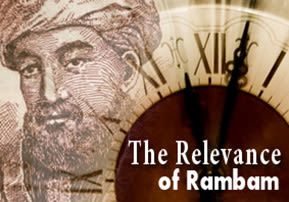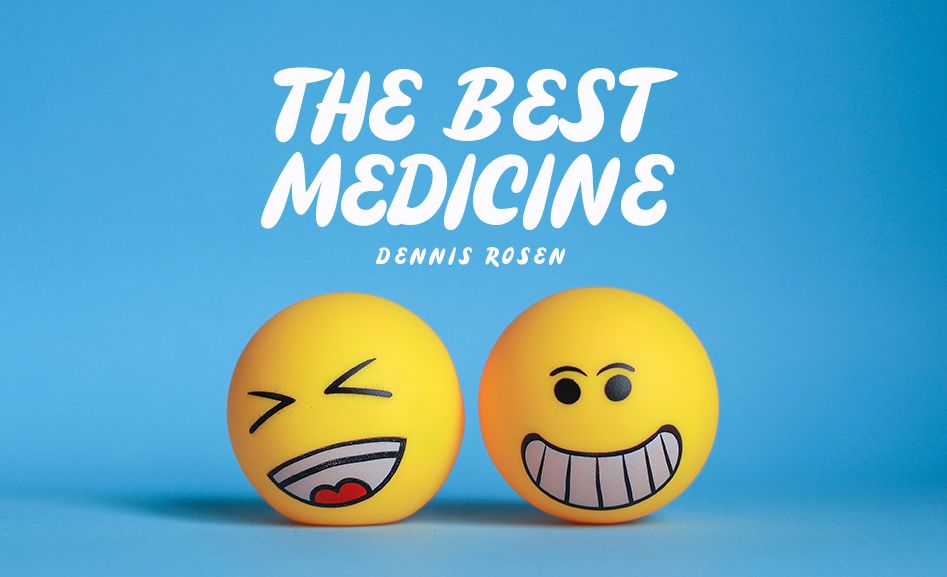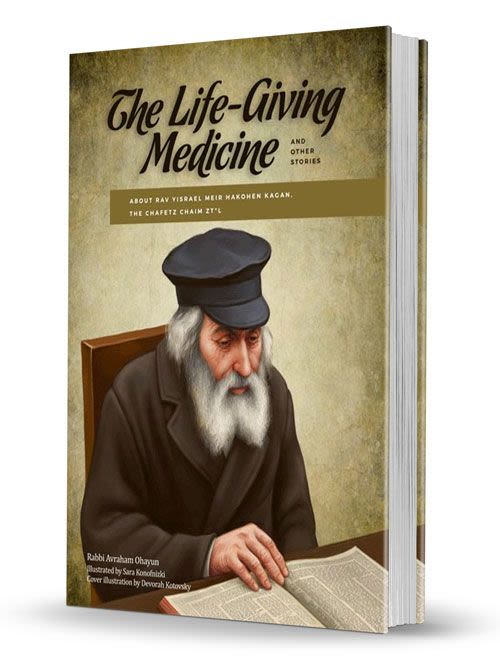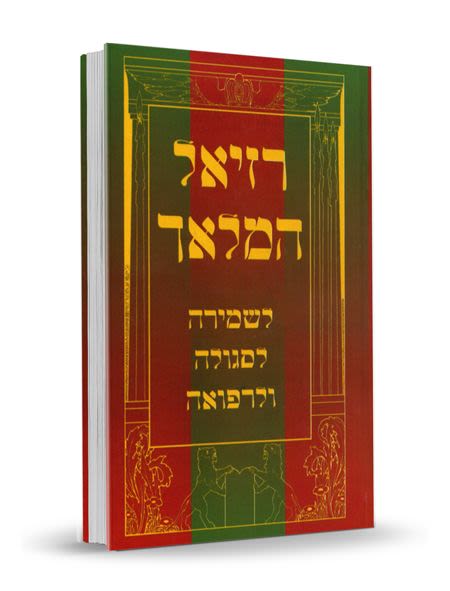
The Relevance of Rambam
The Rambam lived a thousand years ago, but more and more contemporary health and dietary experts are “rediscovering” the timeless truth and effectiveness of his teachings.

Rambam’s Laws on Nutrition and Health, Part 2
Do Rambam’s Halachot Regarding Health and Eating Still Apply Today?
Some people claim that the laws of guarding our body do not apply today according to the principle נשתנו הטבעים (nishtanu hateviim, the natures have changed). This principle was originally quoted to indicate that the dietary principles of the Talmud were no longer applicable. It seems quite straightforward to project the principle of “our natures have changed” to Rambam’s dietary instructions. After all, the Rambam lived almost a thousand years ago, and the world has greatly changed since then. New medical discoveries may over-ride outdated medieval principles. Others may claim, that Rambam’s writings regarding preservation of health were meant to be general advice without being halachic authoritative. Therefore, they do not hold Ramban’s principles of health halachic obligatory; the way they follow the remainder of his halachic code, which became the foundation for the Shulchan Aruch (The Code of the Jewish Law). It should be noted that Rambam clearly calls his principles of health “halachot”, and although he wrote an extensive collection of medical works, he specifically chose to include certain general guidelines on the maintenance of health in his halachic code: “Mishneh Torah.” Rambam unambiguously maintains that his entire Mishneh Torah has halachic binding authority as he writes:
…And I saw fit to compose words which became clear from all these other compositions, in the matters of forbidden and permitted, and unclean and clean along with the rest of the laws of the Torah…. So that all the laws would be exposed… for the small and the great, in the [detailed] laws concerning each and every commandment; and the laws of every matter which the sages and prophets had enacted. In general: so that a person would not require any other composition concerning any law of Jewish law; … And the number of Torah commandments which apply to all generations is six hundred and thirteen commandments… (Mishneh Torah, Introduction, Halacha 41-45)
One of the main proofs, of the relevance of Rambam’s teachings on health for our time, is that the Kitzur Shulchan Aruch simply repeats many of Rambam’s nutritional principles word by word. Since this halachic code is not much older than a hundred years, it cannot easily be brushed away as being outdated. It makes sense to follow the pattern of the Kitzur Shulchan Aruch, which in addition to quoting the Rambam, added pertinent information that supported and expanded his principles of health.
Today, when there is so much conflicting information regarding health and nutrition, from the outlook of “raw food” to the principles of macrobiotics, it is especially valuable to avoid all the confusion by returning to our own Torah sources regarding the preservation of health. In addition to the Kitzur Shulchan Aruch, other halachic authorities, state that Rambam’s advice about health and disease prevention remains relevant today.
Rabbi David J. Zulberg testifies that Rabbi Dr. Abraham Twerski personally told him that he considers anything Rambam wrote about nutrition to be true and ironclad. He also quotes a current nutritionist and medical director of an obesity clinic, Dr. Chalene Wolberg, who concludes: “The understanding of proper nutrition is returning to the principles espoused but the Rambam. Last but not least, a large part of the Yemenite Jewish population, which before immigrating to Israel, were most strict in following Rambam’s main principles and teachings, had an average lifespan of 97-103 years.
General Timeless Principles
Rambam’s principles on nutrition and health are rather flexible and can easily be adapted to different kinds of lifestyle. It is not so much what you eat (quality) but rather how much you eat (quantity) that matters. In his non-fanatic and sensible approach Rambam asserts that it is better to eat a little unhealthy food than to overeat from healthy foods:
All physicians agree that eating a small quantity of bad foods is less harmful than overeating good and healthy foods. When a person eats bad foods, without satiating oneself, the foods are digested well, the organs obtain nourishment from any element in the food that is beneficial and whatever is unhealthy is expelled from the body. In this case, either no harm occurs or the harm that develops is not recognizable. However, over-eating even the best foods can never, ever result in good digestion. (Rambam, The Preservation of Youth 1:1, p. 23)
There seems to be a contradiction in the writings of the Rambam regarding the effect of eating unhealthy foods. His statement “As long as one exercises plenty, doesn’t eat until he is (overly) satisfied, and keeps his bowels soft, he will suffer no illness, and his strength will increase even if he eats unhealthy foods”, is followed by “Most illnesses come upon a person because of eating unhealthy foods…”. This contradiction can be solved as follows: If we do not pay attention to both quantity of food and exercise; eating unhealthy foods will eventually lead to illness. However, when we make sure to exercise sufficiently in addition to being careful with portion control, we create a special synergy that protects our health. Food quality is still important, yet, if we eat the right amount of food and exercise, then we do not have to be as concerned with the quality of food, and can enjoy a bit of chocolate and other “junk foods” occasionally. Rambam’s approach is quite extraordinary, as most health and weight programs are much more rigid and mainly focused on what to eat or not to eat. Rambam teaches us that beneficial eating and lifestyle habits take precedence over food quality. This principle is supported and affirmed in his medical writings.
Rambam’s extensive writings on refined and high-fat foods seem like they could have been written today. He always advises the low-fat and lean portions of milk products and meat. In addition he recommends whole-wheat sourdough bread rather than bread from refined white flour. Other than good whole-wheat bread, Rambam strongly opposes any kinds of wheat products such as noodles, pancakes, fried dough balls and bread soaked in oil.
For the healthy foods which are proper for the person who wants to pursue healthy habits, is wheat bread prepared properly… My advice about proper prepared bread is that it should be from completely ripe wheat after the additional moisture has settled from it, but not as old as it starts to go bad. It should not be bread from refined semolina, but sift the flour and let it gather is sourness, and salt it properly. Make sure that the bread should be from unrefined wheat kernels that are not hulled or refined, and its sourness shall be recognized. (Rambam, the Preservation of Youth 1:6)
The twenty three directives in Hilchot Deot, chapter four of Rambam’s legal code, focus on health as supposed to illness. They are a forerunner for preventative medicine so popular today, and relate to healthy people who want to maintain their health. The general principles which Rambam emphasizes are the importance of eating in a balanced way, doing daily exercise, and ensure proper waste-management. These principles of health are timeless, as for example overeating is always unhealthy, since the human body is designed to only assimilate a certain quantity of food. Exercise comprises a cornerstone of health, since our bodies are designed to use each organ vigorously. Likewise, efficient bowel-movement is fundamental, as throughout the times, it is essential to remove waste and toxins from the body in order to remain healthy.
To be continued
***
Rebbetzen Chana Bracha Siegelbaum is Director of Midreshet B’erot Bat Ayin in Gush Etzion.












11/17/2008
It’s important to note
I think it’s important to note that in Rambam’s time they didn’t have what’s today called junk food. I doubt that he’d allow even a little bit of that.
11/17/2008
I think it’s important to note that in Rambam’s time they didn’t have what’s today called junk food. I doubt that he’d allow even a little bit of that.